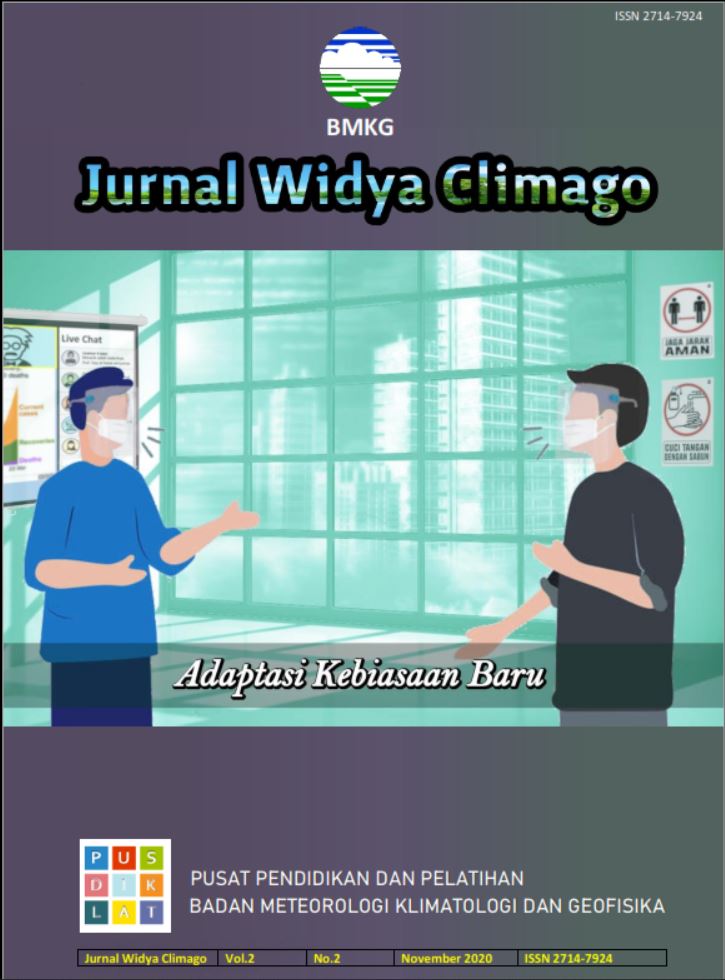Isi Artikel Utama
Abstrak
Tropical cyclones can trigger convective activity between the atmosphere and the ocean, thus affecting convective clouds active growth. TC Mangga, which occurred in May 2020 in the Indian Ocean region, affects Indonesia's significant weather patterns so that a study on TC Mangga is needed. This study examines the development conditions of convective clouds based on the interpretation of gradient winds and satellite imagery from Fengyun
and Himawari 8. Daily rainfall data and Wave watch-III was used to interpreting the impact that TC Mangga
could have during the growing period of tropical cyclones or tropical depression phases. TC Mangga triggers the forming of shear, low-pressure areas, eddy. The interpretation of satellite imagery shows that there are thick convective clouds that form in the Indian Ocean waters with albedo values ranging from 0.55 to 0.83, and the observed cloud top temperatures are colder than -70o C. The indirect effect of TC Mangga activation is the occurrence of rain events with moderate to heavy intensity accompanied by strong winds in several areas of Sumatra Island and Java Island, as well as the potential for high waves ranging from 2.5 to 6.0 meters in the waters of the southern Java Island and West Sumatra Island waters.
Kata Kunci
Rincian Artikel

Artikel ini berlisensi Creative Commons Attribution-NonCommercial 4.0 International License.
